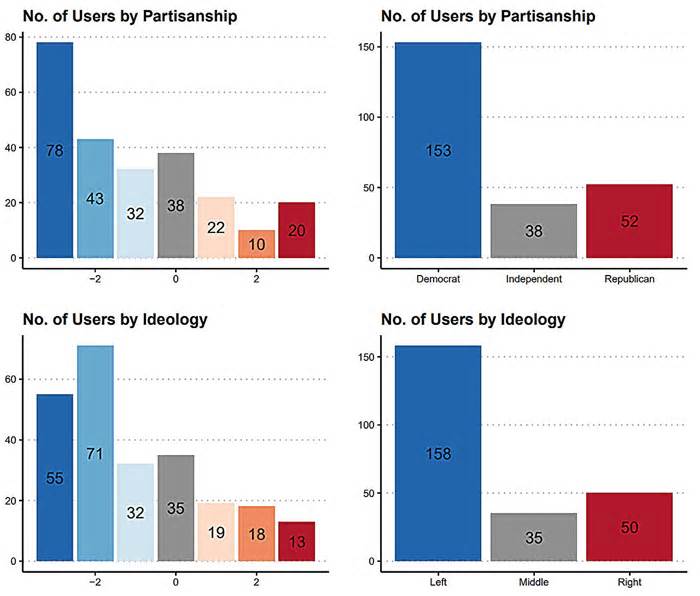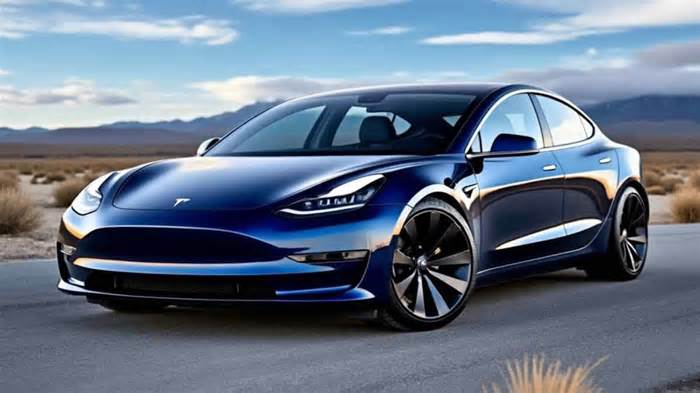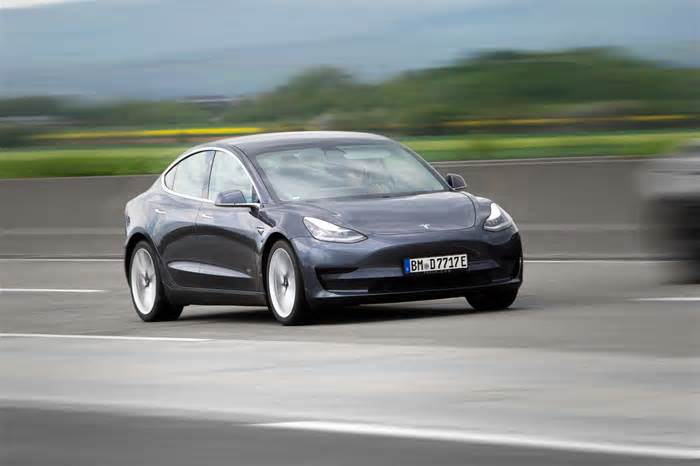

November 4, 2024
The artificial state involves the reduction of politics to the digital manipulations of attention-mining algorithms, the diminishment of citizenship to minutely message-tested online engagement. Predictive algorithms do the work of rallying support, communicating with constituents, even crafting policy.
Illustration by Mark Pernice Shop
Newer social-media companies have not forged a different path. Nearly half of American TikTok users under thirty say they use the platform to follow politics or political issues, and about the same percentage believe that TikTok is “mostly good” for democracy. In 2021, a report by the Department of Homeland Security concluded that TikTok’s algorithm had unintentionally driven support for the January 6th insurrection at the Capitol. This year, a study conducted in Germany alleged that TikTok promoted far-right candidates to young voters. It is not a democratic institution.
It’s not as though these platforms couldn’t become good for democracy, if they were to be reinvented as well-regulated, public-interested digital utilities. “Algorithms for the People: Democracy in the Age of AI,” an extremely thoughtful 2023 book by the British Labour Party M.P. Josh Simons, offers a political theory of machine learning—explaining the politics of search-result ranking, for instance—and expresses confidence that legislators can “develop structures of governance within which corporations design infrastructural ranking systems that create a healthy public sphere and civic information architecture.” This isn’t a new idea, and it’s one shared by Risse, who follows many earlier writers, including Ethan Zuckerman, in proposing a public-interested digital infrastructure, “like creating parks and libraries for the internet.” Where Risse endorses epistemic rights as a new kind of human right, Simons proposes an A.I. Equality Act, to “assert political equality as a guiding principle in the design and deployment of predictive tools.” If twenty-first-century democracy feels half dead, Simons believes that working through these challenges will bring it back to life. That can’t happen fast enough, because, year by year, the problems get more difficult to solve.
In the artificial state, at least as much political speech is made by bots—programs that, mimicking human behavior, execute automated tasks—as by humans. The Internet became “inverted” in 2012, when, for the first time on record, bots were more active online than people were. This helped generate a conspiracy theory, known as the dead-Internet theory, that everything on the Internet is fake. “It’s ridiculous, but possibly not that ridiculous?” the Internet beat reporter Kaitlyn Tiffany wrote in The Atlantic. Although Cambridge Analytica’s targeting of voters using Facebook data in the 2016 election was met with condemnation, what it did seemed little different from the way news organizations had come to treat their own political coverage, driven less by editorial judgment than by search-engine optimization.
Social media made many things worse. “For Twitter to deserve public trust, it must be politically neutral,” Elon Musk tweeted, when he was taking over the company in 2022. By 2023, X had, by some estimates, become inverted: one study found that nearly two out of three of its accounts appeared to be bots. (An X-commissioned study said that the amount was closer to eleven per cent.) Despite Musk’s promise to rid the platform of them, X now seems to have more bots than ever before. Earlier this year, Musk estimated that there would soon be two, three, or four bots for every human on the planet. (He’s building the technology that could allow us to abandon the planet, so long as no pesky government stops him. “Unless current trends for absurd regulatory overreach are reversed, humanity will be confined to Earth forever,” Musk recently declared.) Zuckerberg, once widely discussed as a possible Democratic candidate for the Presidency, gave up on American politics, refusing to try to fix what he’s broken and instead devoting himself to his personal “wellness,” the refuge of all scoundrels; he has also privately reinvented himself as a libertarian. This fall, Musk not only endorsed Trump but, dressed in black and describing himself as “dark MAGA,” appeared at a Trump rally to warn Americans that, if they don’t vote, “this will be the last election.” But this very sense—the dark and uncanny precarity of it all, the exhausted rhetoric of existential risk, the fear that everything might collapse because everything is at once so fragile and so fake, so untrustworthy and so unreal—is itself a creation of the artificial state.
The building of the artificial state came at the expense of the natural world. “The modern world worships the gods of speed and quantity, and of the quick and easy profit, and out of this idolatry monstrous evils have arisen,” Rachel Carson warned in the preface to a 1964 book called “Animal Machines,” the “Silent Spring” of factory farming, which involved the raising of animals from birth to death in cages hardly bigger than themselves. “Yet the evils go long unrecognised,” Carson wrote. “Even those who create them manage by some devious rationalising to blind themselves to the harm they have done society.” The artificial state is the factory farming of public life, the sorting and segmenting, the isolation and alienation, the destruction of human community. Meanwhile, the immense energy and water consumption required to build, expand, and maintain the coming A.I. infrastructure threatens to roll back gains made by environmental regulation in the past half century.
This election season, even as hurricanes battered North Carolina and Florida, the natural world has been notably absent from both the Trump and the Harris campaigns. Trump, who used to describe climate change as a hoax, has not substantially altered that position. (“You know, they have no idea what’s going to happen,” he said this summer. “It’s weather.”) Harris, despite having been part of an Administration that produced perhaps the most important environmental law in a generation, has seemed to distance herself from environmentalism as she attempts to take back the language of freedom from her opponent. But, as the historian Sunil Amrith writes in his essential new book, “The Burning Earth: A History,” the rhetoric of freedom has become bound up with the triumph of the artificial over the natural: “Into the pursuit of freedom there crept, over time, a notion previously unthinkable: that true human autonomy entailed a liberation from the binding constraints of nature.”
Risse’s “Political Theory of the Digital Age” laid out a philosopher’s thought experiment, a “Grand Democratic AI Utopia,” in which democracy would work at machine scale. Judges would be replaced with sophisticated algorithms, legislators with “AI-driven collective choice systems.” He wrote that “nobody has so far seriously proposed anything like this,” and cautioned that we would be “ill advised to be guided by such a utopia.” But his book was published last year, and since then fantasies of a Grand Democratic AI Utopia have cropped up all over the place.
In “The Techno-Optimist Manifesto,” posted last October, Marc Andreessen, the venture capitalist and notable Trump-Vance supporter, delivered a delusional account of human history as the triumph of the “techno-capital machine” over the constraints of nature. “We had a problem of isolation, so we invented the Internet,” Andreessen proclaimed, preposterously. The solution is at hand: “We believe Artificial Intelligence is our alchemy, our Philosopher’s Stone—we are literally making sand think.” This September, OpenAI’s Sam Altman posted an essay in which he argued that generative A.I. is “the most consequential fact about all of history so far,” and that humanity is on the cusp of solving every problem. “There are a lot of details we still have to figure out,” Altman wrote, unironically, “but it’s a mistake to get distracted by any particular challenge.” The following month, not to be outdone, Dario Amodei, the C.E.O. of Anthropic, a rival of OpenAI, published a blog post called “Machines of Loving Grace: How AI Could Transform the World for the Better,” in which he predicted that A.I. could lead, in five to ten years, to “the defeat of most diseases, the growth in biological and cognitive freedom, the lifting of billions of people out of poverty to share in the new technologies, a renaissance of liberal democracy and human rights”—developments that will happen so fast and be so overwhelming that many of us will be “literally moved to tears.” Someone will be crying. That much is true.
Having built an information infrastructure that classifies and divides humans and drives them to ideological extremes, these same people and corporations are now building machines that purport to undo the very damage they have caused, much in the same way that geoengineering schemes seek to address catastrophic climate by using the very logic and tools that created the problem. In a study funded in part by M.I.T.’s Generative AI Initiative and published in Science this fall, conspiracy-minded Americans were subjected to long exchanges with a deprogramming chatbot. “The treatment reduced participants’ belief in their chosen conspiracy theory by 20% on average,” the researchers concluded. They don’t seem to have bothered to establish control groups who might, for instance, have been asked to read articles and books, or—seemingly beyond the realm of imagination—converse with another human.
The same spirit of inquiry-as-boosterism lies behind “The Digitalist Papers.” It brings together venture-capital magical thinking about a Grand Democratic AI Utopia with the kind of social science that imagines improving machines but cannot imagine helping people by way of, say, funding for public education. The self-described Federalist Papers for the age of artificial intelligence propose schemes that include digital citizen assemblies and “actionable strategies for successfully transitioning to a new era of governance whereby AI recommends courses of action to the humans” in places like legislatures and courtrooms. In one of the essays, “The Potential for AI to Restore Local Community Connectedness,” the former C.E.O. of Nextdoor touts the ability of the company’s “AI Kindness Reminder” to reduce “the creation of uncivil and harmful content.” Eric Schmidt, the former C.E.O. of Google, boasts that “the coming of AGI may herald less of a new world order and more of an improved version of our current liberal order: Democracy 2.0.” John Cochrane, a Hoover Institution economist, delights at this news: “As birthrates continue to decline, the issue is not too few jobs, but too few people. Artificial ‘people’ may be coming along just in time!” All but alone among the Digitalist Papers’ contributors, the legal scholar Lawrence Lessig sounds a note of caution: “The likely effect of AI will make an already broken political system even worse.”
The artificial state is not alive; it cannot be killed. But, because it is something built, it can be dismantled, if enough people decide to sell it off for parts. Other very stubborn systems for organizing human societies have been dismantled before. The divine right of kings, feudalism, human bondage. Compared with those, this one might be easy. It begins with naming it. ♦
Published in the print edition of the November 11, 2024, issue, with the headline “The Artificial State.”
Election 2024: Full Coverage
Please first to comment
Related Post
Stay Connected
Tweets by elonmuskTo get the latest tweets please make sure you are logged in on X on this browser.
Sponsored
Popular Post
Tesla: Buy This Dip, Energy Growth And Margin Recovery Are Vastly Underappreciated
28 ViewsJul 29 ,2024






 Energy
Energy


















